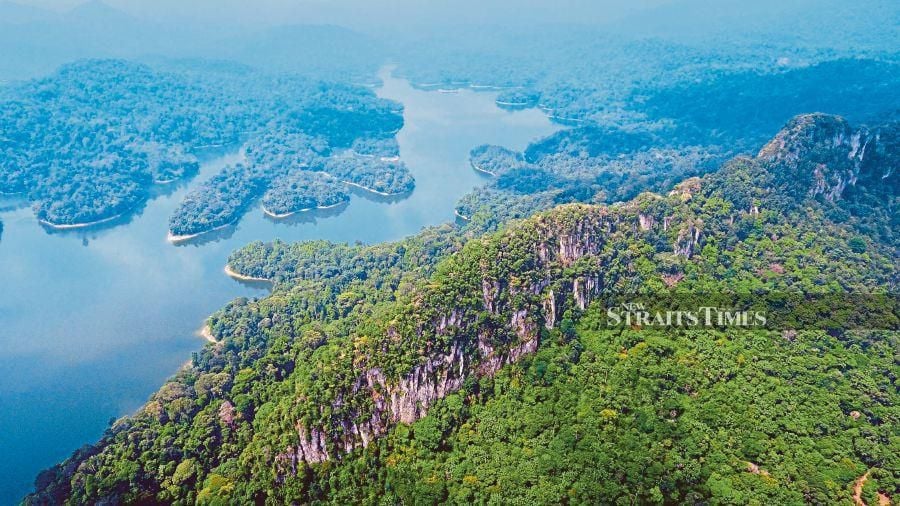Many Malaysians will have heard or read about Prime Minister Datuk Seri Anwar Ibrahim’s successful recent missions to Australia and Germany.
His erudite responses to questions about Hamas drove home the point that conflict in Gaza did not start on Oct 7 but almost eight decades ago, when hundreds of thousands of Palestine Arabs started to be driven from their ancestral homes.
The current atrocities in Gaza have killed more than 32,000 Palestinians against 1,100 Israeli fatalities on Oct 7.
In Germany, Anwar underlined his opposition to violence and hostage taking on either side, and knowing that “all the leading German politicians think that defending Israel is morally the right thing to do because of the German past”. His laudable efforts resonate well with Malaysians.
I urge him to use his oratorical and diplomatic gifts to embrace another cause threatening world peace and security — the existential threats brought about by our ongoing neglect of the environment.
Every year, new average global temperature records are being set due to unabated emissions of greenhouse gases. The resulting planetary heating now contributing to human migration from unsustainable situations, compounded by rising sea levels as polar ice sheets melt.
Massive forest fires and floods now regularly devastate human lives and the diversity of Earth’s other life forms on which our species’ survival depends.
The dramatic consequences of our arrogance towards Mother Nature are recorded in the seven million deaths that occurred during the Covid-19 pandemic, history’s fifth deadliest episode of its kind.
We have had decades of warnings not to assault the environment, dating to the seminal 1962 book The Silent Spring by Rachel Carson, who documented the results of indiscriminate pesticide use, particularly on birds.
We had decades to consider what needs to be done. In 1987, an influential report to the United Nations General Assembly, “Our Common Future”, defined “sustainable development” as development that meets the needs of the present without compromising the ability of future generations to meet their needs.
In response, the UN convened an “Earth Summit” in June 1992 in Rio de Janeiro, where 179 heads of government chalked up some major successes, including new global agreements on climate change, biodiversity and desertification.
It also brought into sharper focus contentious issues, such as the precautionary principle, common but differentiated responsibilities, and the polluter pays principle.
Sadly, the historic summit has largely failed to live up to global hopes. Ultimately, it is the commitment and conviction of our top political leaders that will determine our collective fate.
In 1972, prime minister Indira Gandhi of India eloquently warned that modern man must re-establish an unbroken link between nature and life.
“He must again learn to evoke the energy of growing things and to recognise, as did the ancients in India centuries ago, that one takes from the Earth and the atmosphere only so much as one puts back into them.”
Today, Prime Minister Mia Mottley of Barbados stands out as a champion of both the environment and the social wellbeing of people most affected by climate change.
Like Indira, she bluntly puts it that “wealthy countries and corporations who have contributed to the climate crisis must do their part to address its global consequences”.
In a recent address to the UN General Assembly in New York, she observed that “our world knows not what it is gambling with, and if we don’t control this fire, it will burn us all down”.
Malaysia is a small country, but we have all the qualifications to champion in similar fashion a sustainable future for humanity.
We are acutely aware of the need to conserve the natural resources needed by future generations. And our pledge at the Earth Summit to keep at least 50 per cent of our landmass under forest cover remains valid today.
Malaysians will give Anwar their full backing to turn this country into a progressive one that is active on the world stage promoting sustainable prosperity for humankind for generations to come, while ensuring sanctuary for the living beings that share this planet with us and make it liveable.
* The writer is a distinguished professor at UCSI University, a senior fellow of the Academy of Sciences Malaysia, and a former science adviser to former UN secretary-general Ban Ki-moon
Source: https://www.nst.com.my/opinion/columnists/2024/03/1030941/political-will-needed-save-planet

